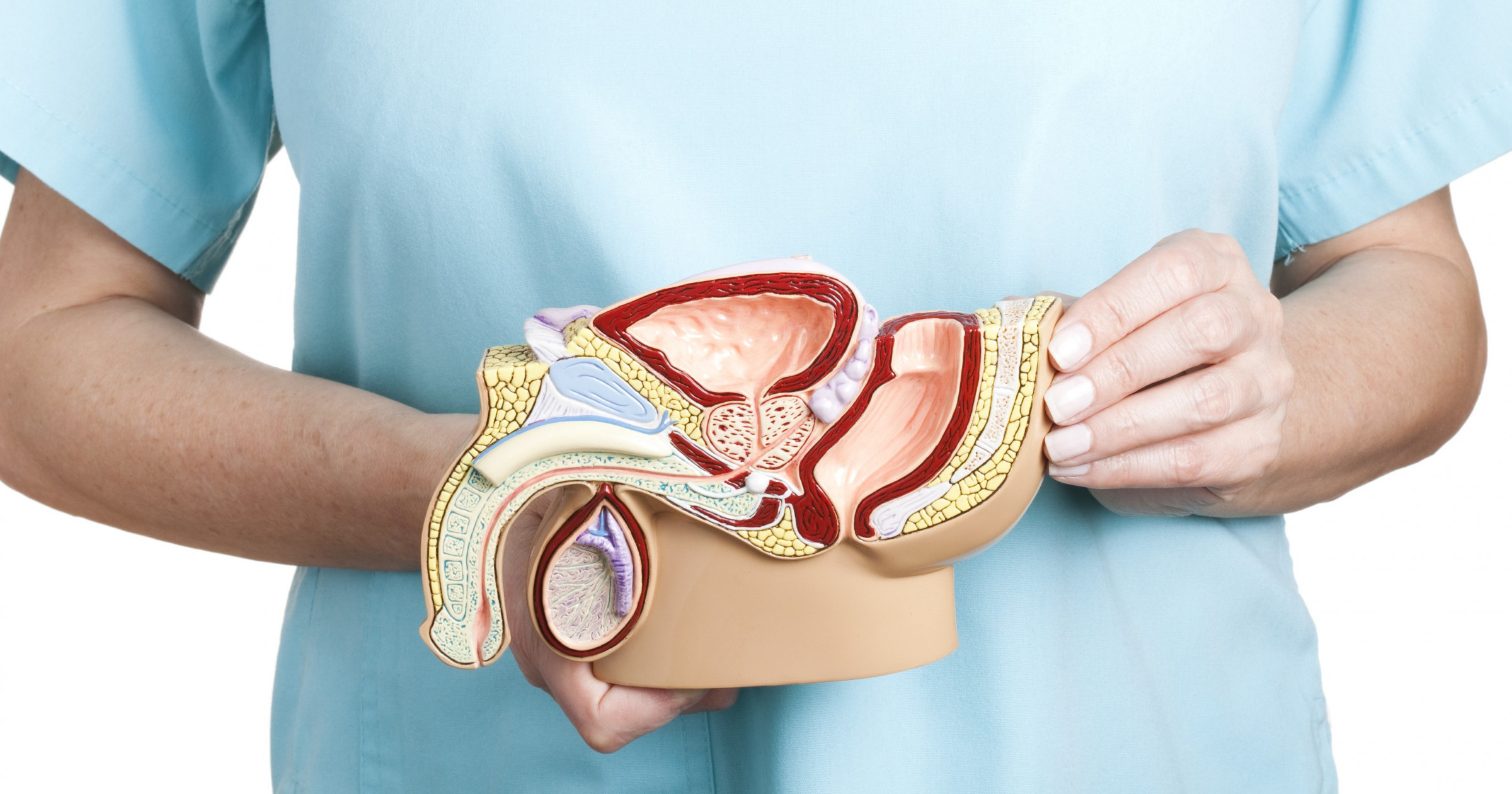Prostate Cancer
- Prostate cancer is cancer that happens within the prostate. The prostate could be a little walnut-shaped organ in guys that produces the seminal fluid that feeds and transports sperm.
Prostate Cancer
Prostate cancer is cancer that happens within the prostate. The prostate could be a little walnut-shaped organ in guys that produces the seminal fluid that feeds and transports sperm. Prostate cancer is one of the foremost common sorts of cancer. Numerous prostate cancers develop gradually and are limited to the prostate organ, where they may not cause genuine hurt. In any case, whereas a few sorts of prostate cancer develop gradually and may require negligible or indeed no treatment, other sorts are forceful and can spread quickly. Prostate cancer that's detected early — when it's still restricted to the prostate organ — has the most excellent chance for effective treatment.

Symptoms
Prostate cancer may cause no signs or symptoms in its early stages.
Prostate cancer that's more advanced may cause signs and symptoms such as:
- Trouble urinating
- Decreased force in the stream of urine
- Blood in the urine
- Blood in the semen
- Bone pain
- Losing weight without trying
- Erectile dysfunction
Causes
It's not clear what causes prostate cancer. Doctors know that prostate cancer starts when cells within the prostate create changes in their DNA. A cell's DNA contains the enlightening that tell a cell what to do. The changes tell the cells to develop and isolate more quickly than ordinary cells do. The irregular cells proceed living, when other cells would die. The collecting anomalous cells shape a tumor that can develop to attack adjacent tissue. In time, a few unusual cells can break absent and spread (metastasize) to other parts of the body.
Risk factors
Factors that can increase your risk of prostate cancer include:
- Older age. Your risk of prostate cancer increases as you age. It's most common after age 50.
- Race. For reasons not yet determined, Black people have a greater risk of prostate cancer than do people of other races. In Black people, prostate cancer is also more likely to be aggressive or advanced.
- Family history. If a blood relative, such as a parent, sibling or child, has been diagnosed with prostate cancer, your risk may be increased. Also, if you have a family history of genes that increase the risk of breast cancer (BRCA1 or BRCA2) or a very strong family history of breast cancer, your risk of prostate cancer may be higher.
- Obesity. People who are obese may have a higher risk of prostate cancer compared with people considered to have a healthy weight, though studies have had mixed results. In obese people, the cancer is more likely to be more aggressive and more likely to return after initial treatment.
Prevention
You'll be able diminish your hazard of prostate cancer on the off chance that you:
Choose a sound slim down full of natural products and vegetables. Eat a assortment of natural products, vegetables and entire grains. Natural products and vegetables contain numerous vitamins and supplements that can contribute to your health.
Whether you'll be able anticipate prostate cancer through eat less has however to be conclusively demonstrated. But eating a solid slim down with a assortment of natural products and vegetables can move forward your in general health.
Choose solid nourishments over supplements. No thinks about have appeared that supplements play a part in diminishing your chance of prostate cancer. Instead, select nourishments that are wealthy in vitamins and minerals so merely can keep up sound levels of vitamins in your body.
Exercise most days of the week. Work out progresses your in general wellbeing, makes a difference you keep up your weight and moves forward your temperament. Attempt to work out most days of the week. In case you're unused to work out, begin moderate and work your way up to more work out time each day. Maintain a sound weight.
If you're concerned about your risk of developing prostate cancer, contact with us!



